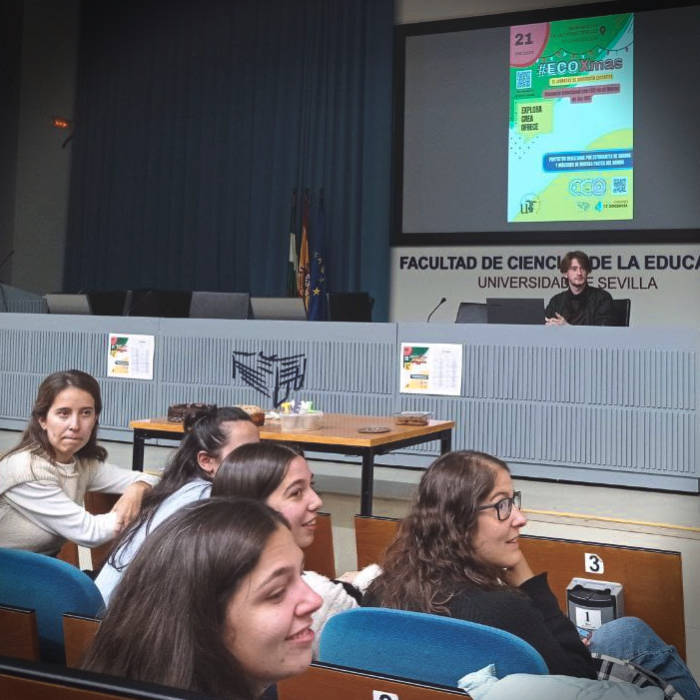Emotional Teaching with ECO within the Framework of the SDGs
(Sustainable Development Goals)
Challenges with ECO
Learning environments, now prominent with the implementation of the LOMLOE in pre-university education, are real spaces where genuine learning has always naturally and informally taken place. The natural way of learning, free from formal instruction, is intuitive and autonomous. We then update ourselves intellectually, emotionally, and physically through first-hand experimentation — directly, on-site, in action, and naturally... learning through on site-action. It is at this point that school appears, bringing with it its models, norms, and experts. Thus, a stage of formal and "formalizing" learning begins. Our mental structures gradually adapt to a context, to an environment that is not always easily recognizable or willingly accepted.

The final stage of learning is learning through understanding. An adult mind, therefore, loyal to the subject's identity —to the being it sustains— fosters awareness and makes learning its modus vivendi. It is learning through living, through being. Being true to oneself, in harmony with others, among others, with everyone. This "being in the world" is capable of leading —more than simply empowering— its own learning, of discerning and deciding, of identifying personal interests aligned with one's environment and time. It is a commitment without a contract to the supporting society: the society that shapes the conditions of our growth and to which, in rightful reciprocity, we can give back in the form of knowledge. In other words, the environment shapes us, and we reshape the environment.
This process is fueled by the presence of our essence, like those individuals often referred to as change agents. Each one of us is a change agent simply by being alive. Change is inherent to human beings; what remains is the will, the strength, and the necessary energy to act and expand its effects. We call this expansion resonant learning: that which belongs to us intimately, yet nourishes everyone publicly. Learning belongs to us; knowledge does not.

We learn by consciously and deliberately resonating, drawing on intuition, experimentation, expert knowledge —which we approach critically and with determination— and understanding. We learn through the creation, contrast, and validation of what we propose as a manifest entity, not merely of what is —what exists— but of what could be —what is yet to come. We learn appreciatively by resonating with our environment, by affectively listening to those who inhabit it, and we learn by generating resonance through its transformation, which we actively provoke. It is a public, visible, tangible transformation —and also an intimate, personal, and perhaps intangible one. One cannot exist without the other.
And here lies what ECO truly is: an opportunity to achieve a life worth enjoying, for both personal and common good —a life of Ithaca. A full life, not a flat one; a vibrant life for an exciting world.
In that world of trust lies OUR CHALLENGE… with ECO. In it, we are!
Eduardo Herrero Vázquez
Dr. Architect
University of Seville, Spain
Department of Graphic Engineering